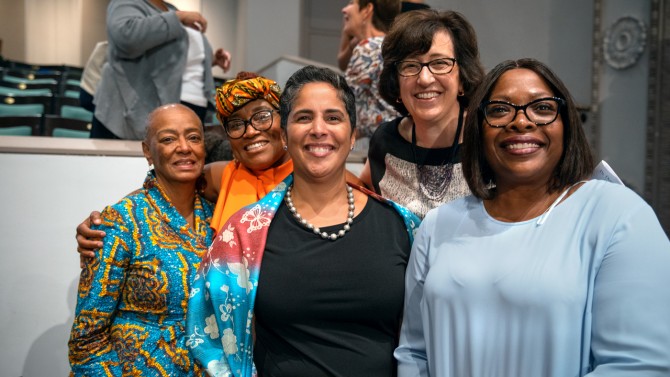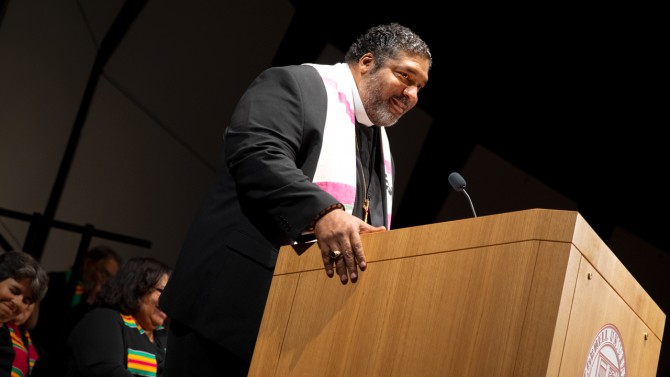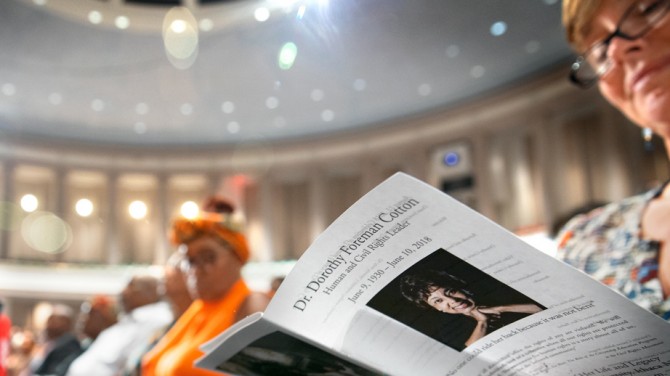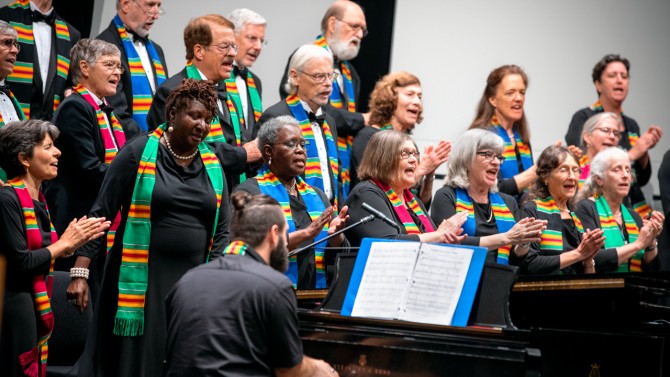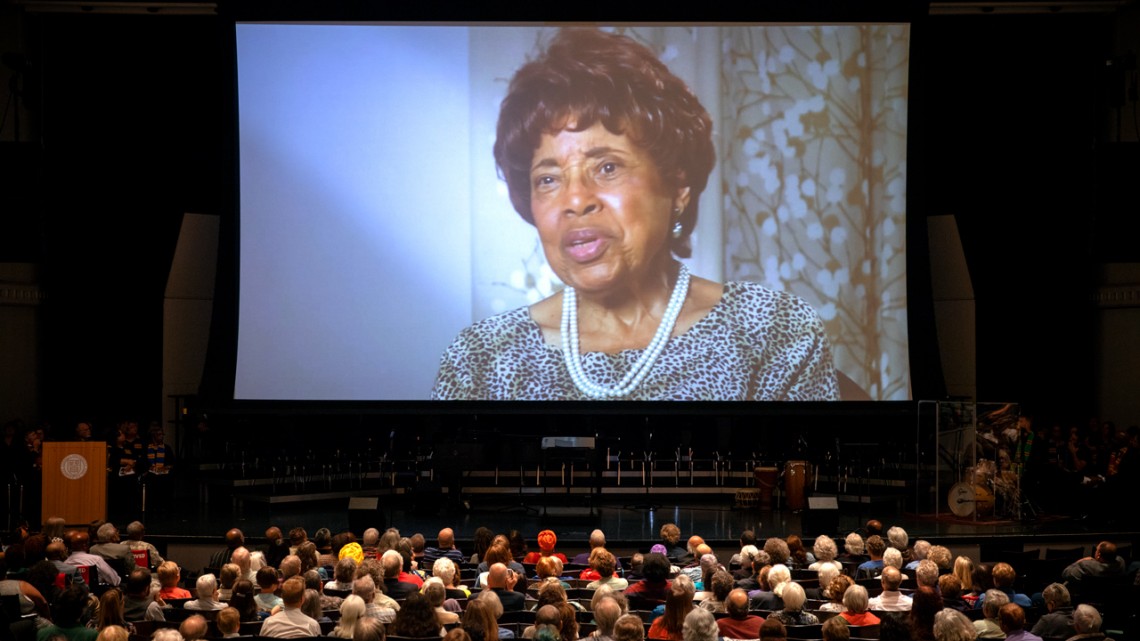
Members of Dorothy Cotton’s family and about 700 local and national leaders, friends and community members attend the celebration of the life and legacy of Dorothy Foreman Cotton Aug. 11 in Bailey Hall.
Dorothy Cotton’s lifetime of service leaves lasting legacy
By Nancy Doolittle
The celebration of the life and legacy of Dorothy Foreman Cotton Aug. 11 in Bailey Hall provided highlights of her life as a civil rights pioneer, educator and community organizer and called on participants to keep her legacy alive. Attending were representatives from five generations of Cotton family members and about 700 local and national leaders, friends and community members.
A close colleague of the Rev. Martin Luther King Jr., Cotton was the highest-ranking woman in the Southern Christian Leadership Conference in the 1960s, where she led the group’s Citizenship Education Program, teaching literacy, citizenship and the tactics of nonviolent protest. A role model for women, she served as director of student activities at Cornell from 1982 to 1991. She subsequently led seminars and workshops on leadership development and social change, and published a memoir in 2012. She died June 10 in Ithaca at age 88.
“She taught students to act on their own convictions, to speak out on vital issues, and to work for a more just and equitable world,” said Cornell President Martha E. Pollack. Cotton’s legacy continues through the human rights advocacy of the Dorothy Cotton Institute and “in the labor of all who work together on issues of equity and inclusion,” she said.
“We at Cornell are proud to have had Dorothy Cotton as a progressive educator on our campus, and we feel privileged that such a strong and principled woman was also a member of our community and the greater Ithaca community for so many years,” Pollack said.
Ithaca College President Shirley Collado and Tompkins Cortland Community College President Orinthia Montague also focused on Cotton’s ability to draw others together, inspiring them to follow in her footsteps as champions of education, activism and service.
The theme of keeping Cotton’s legacy alive ran through all remarks. The Rev. William J. Barber II, co-chair of the Poor People’s Campaign: A National Call for a Moral Revival, recalled how Cotton and the civil rights movement expanded the meaning of the spiritual “You Gotta Move When the Spirit Says Move” to rally others in the movement. He outlined how Cotton herself “moved” whenever the spirit said “move”: organizing, marching and empowering others through the citizenship schools she implemented.
“There would have been no Barack Obama without those citizenship schools,” Barber said.
Finally, after 88 years, one more time the spirit said, “it’s time to move,” Barber said. “Your work is done … your legacy set.”
Cal Walker, emcee and former Cornell outreach liaison, read from a letter written by radio and television talk show host Tavis Smiley, who said upon hearing of Cotton’s passing: “All we can do is keep her legacy alive … by living lives of love and service.”
Cotton “does not need us to stand here and praise her,” said Aljosie Aldrich Harding, one of Cotton’s longtime friends and a civil rights activist. Her spirit lives “as long as we remember she was an encourager and she was a worker,” Harding said, urging the audience to “think about how you can serve in your community.”
Kirby Edmonds, program coordinator and senior fellow for the Dorothy Cotton Institute, called on each member of the audience “to commit today to be a champion of Dorothy’s legacy” by “continuing in the work she devoted her life to: ending oppression everywhere, ensuring the full enjoyment of human rights for everyone and bringing about the love of community.”
Sharing remembrances and anecdotes about “our Aunt Dorothy,” Gwen Hinton Perry said Cotton’s family members “all carry a piece of her” that will be passed on “from generation to generation to generation.”
Several musical groups and musicians, including the Dorothy Cotton Jubilee Singers, performed.
Media Contact
Get Cornell news delivered right to your inbox.
Subscribe